The transformation from maidenhood to motherhood is one that is too often taken too lightly. It involves incomparable physical pain, indescribable emotional stress, and trauma that tends to be brushed off by outsiders as ‘normal’ and as a result, is either ignored or quickly forgotten. But a mother doesn’t forget – not right away, at least. In the weeks and months following the birth of her child, she lives every day with the acute reminders of what her body has just endured.
North American society has ingrained in us the idea that childbirth is merely a part of life – an isolated event – and after a few weeks, a woman will find her stride and seamlessly perform her role as mother; but that notion only stands to reveal a lack of understanding about the postpartum experience. Hormones are out of whack – causing major emotional ups and downs, sleep deprivation is a monster than can wreak havoc on even the most calm and collected people, and the feeling of isolation that a woman experiences when the last visitor leaves and hubby heads back to work can be completely overwhelming.
I had my son after 12 hours of overnight labour (sans pain killers), followed by an emergency c-section. It took an anesthesiologist 3 tries to insert an epidural needle into my spine (that took a total of 30 mins during active labour), and before the meds could take effect, I was being rushed to the O.R. – alone – since nobody was allowed in the room until they had stabilized both me and my unborn child.
There is trauma in bringing life into the world, and after the last staple had been applied to hold my abdomen together, and blood and after-birth began to pour steadily from my still contracting uterus, I was handed my beautiful son and encouraged to now let him suck on my tender nipple until he could extract some milk. This, after being awake for 36 hours and undergoing massive abdominal surgery. *Welcome to Motherhood*
Hospital staff is amazing and helpful and informative, but your stay there is short lived… real life begins once you walk through the threshold of the place you call home.
I was lucky, in that respect, because for the first 2 weeks after delivery, I had round-the-clock help. My partner, parents, grandmother and in-laws all rallied and made sure I wasn’t over exerting myself. Meals were made, the house was clean, the baby was held and I was allowed to rest. But after my live-in help left and Daddy had gone back to work, I must admit – I was completely terrified.
My first anxiety attack happened in my third week postpartum. I needed to get out of the house so I decided that me, my healing abdomen, my baby and my dog would go for a stroll. I lifted the stroller down my 2 front steps (mistake #1), and headed out. Well it didn’t take long for me to realize that my injured stabilizing core muscles were not ready for this kind of action. I hobbled back home, sat the baby in his bouncer and tried to catch my breath – and when I realized that I couldn’t catch my breath, I spiraled into a full blown anxiety attack: I worried that I had ruptured my internal stitches (I hadn’t); I wondered what would come of the baby if I were to fall unconscious (I didn’t), and who would nurse him if I had to be rushed to the hospital (how quickly our priorities change!). Thank God I was able to call Anthony, who rushed home right away and whose presence instantly set my nerves at ease. I thought I should have been ready to stand on my own two feet, but I wasn’t. I had no clue what the fuck I was doing. I needed help. I needed to heal.
Lucky for me (and my sanity), I’m not someone who shies away for asking for help once I realize I need it. For the next few weeks (maybe even months – it’s honestly all a blur now) my parents came over for a few hours every day to lend a hand while Anthony was at work. Knowing I only had to be alone with the baby for a couple hours at a time took a massive weight off my shoulders. The reinforcements were coming, and looking back I think that was the only thing that allowed me to keep it together and make it out of the “fourth-trimester” mostly unscathed.
So please, if you’re reading this, spouses, partners, loved ones, mothers, mother-in-laws, I’m begging you, when the new mom in your life arrives home with the family’s new pride and joy, let her heal.
Only days ago, her internal organs were laying on a tray beside her body as a baby was forcefully removed from her abdomen… let her heal.
She looks in the mirror and sees a woman she doesn’t recognize. Her stomach is soft, her eyes are tired, her skin is pale, and her cheeks are swollen… let her heal.
She’s starving. Her body is the only source of nutrition for 2 humans now. She’s burning 700 calories per day just producing milk. Her reserves are running low. Make sure she has healthy, whole foods available to her and let her heal.
She needs to feel fresh air on her face but she’s not strong enough to go for a walk; lay her in bed, take the baby, bring her a tea, open all the bedroom windows and let her heal.
She is prone to panic and anxiety, shock and depression. She’s dying to “bounce back”, but for now, just let her heal.
Don’t dismiss her cries for help as weakness. Don’t assume she’s just complaining (and absolutely don’t tell her to suck it up or get over it – doing so will make her wish she had the strength to strangle you). Give her all the energy and patience you can muster and let her heal.
When the world has moved on, and it’s just you, your baby, your hormones, your tender abdomen (in my case), and your sore nipples, it’s almost impossible not to think, “Umm, THIS IS NOT WHAT I SIGNED UP FOR”.
It makes me wonder how we expect women to not develop the “baby blues” (a frustrating euphemism involving a shitty play on words that completely belittles the postpartum experience, but that’s beside the point). During a woman’s pregnancy, people are all over her – from doctors, to family members, to strangers on the bus – everyone has suggestions, well wishes, words of advice, and they even seem genuinely interested in the state of well-being of ye old preggo. Once baby arrives? It’s sayonara mama and HELLO AWESOME INFANT! The priority shifts, and mom is left wondering what is wrong with her.
How come I’m not head over heels in love with the baby? Where are these waves of anxiety coming from? Why are people constantly asking me if I’m loving being a mom?
And then what happens? A few brave souls contact their caregiver after self-diagnosing themselves via Dr. Google with postpartum depression and they’re given a prescription for antidepressant pills and sent on their merry way.*
But does that not seem totally ass backward to you? Is it not painfully clear that our society is happy to treat the symptoms yet completely unwilling to solve the root problem?
We don’t need a prescription, we need fucking HELP. We need support. We need sleep. We need food, and rest, and time to ourselves so we can get to know this new role of “mom” that we’ll have to play for the rest of our lives. The kicker is that other cultures have actually managed to figure this out and they have maintained over hundreds of years a little thing called a culturally accepted postpartum period. In a fascinating article in The Daily Beast, the author of “Why Are America’s Post Partum Practices So Rough on New Moms?” describes a few postpartum traditions in countries outside of the western world:
“The Chinese traditionally adhere to 30 days of restful confinement—another week for a C-section—during which time moms are meant to consume lactation-inducing soups and herbal tonics and abstain from sex and cold water. In Mexico, the ritualized interlude, or the cuarentena, goes for 40 days, or long enough for the womb to return to its place. Balinese women are not allowed to enter the kitchen until the baby’s cord stump has fallen. Dutch maternity nurses make postpartum visits every day for the eight days after childbirth, and in France, as elsewhere, new moms spend nearly a week in hospital. Always, the mothers are educated as they convalesce; they’re taught to breast-feed, to manage baby rashes and bath time and sore nipples. Rarely are they first to respond to the infant’s shrieking.”
Wow. Wouldn’t that be nice? To not be expected to whip up dinner – even a month after you’ve given birth? To know that your older children are receiving round the clock care by loved ones so you’re not bending down to kiss the boo boos of your 3-year-old the day you get home from the hospital?
While it would take a seriously long time to implement such postpartum support systems in a city like Toronto, for example, what we CAN do for starters is become more vocal about the postpartum period. Let’s not tell our husbands we’re fine and resume doing the laundry when we’re still at risk for blood clots, shall we? Let’s take our moms up on their offers to “stay as long as we need them”. Let’s hire a cleaning lady, even temporarily, so we’re not looking at the floors from the couch thinking, “I don’t care if my insides fall out, someone pass me the damn vacuum cleaner!”. Let’s give an honest answer to the friend who asks, “are you just loving every second?” so that when she has a kid of her own, she’s not left thinking, “I’m such a failure! Everybody else loved every second of early motherhood!”. And if we know someone who’s husband genuinely can’t take time off work, and whose parents are not available to help, can we all make a pact to come together and do our best to make sure that we let her heal too?
‘You can’t pour from an empty cup’. ‘Apply your oxygen mask before assisting others’. There are many ways to say it… the bottom line is we need to bump mama up the priority list while she is still recovering from the experience of child birth. She has her whole life to take care of her children; for the first few weeks postpartum, make sure she knows there is no guilt, shame or wrongdoing in taking care of herself first.
*Yes, I am aware that there are some women who suffer a chemical imbalance post-childbirth for whom medication is an absolute must – This statement applies to women to whom that is not proven to be the case.
What was your postpartum experience like? Feel free to share your story too!
***
Originally published November 2015.
Featured Image by Maria Ana Micsunescu
If you like what we’re doing, you can support us further by following us on
Instagram, Twitter, and Facebook and by shopping The Rebel Mama


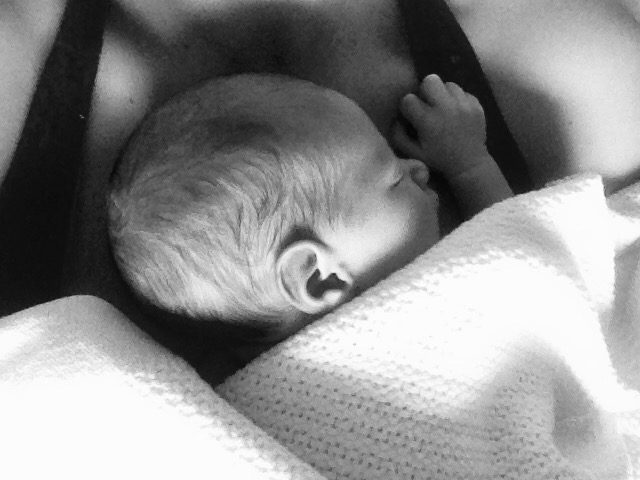
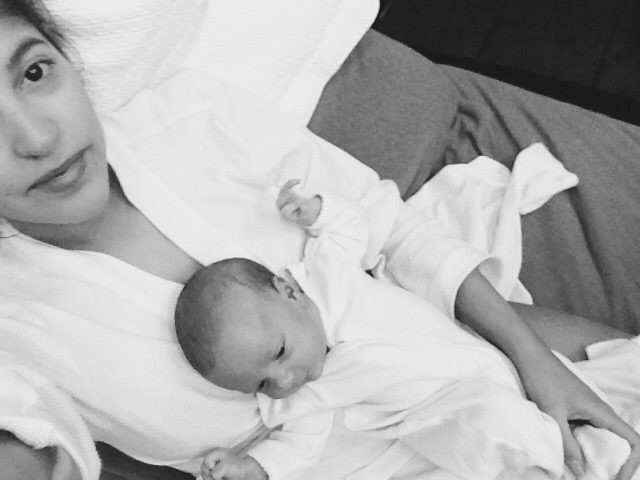
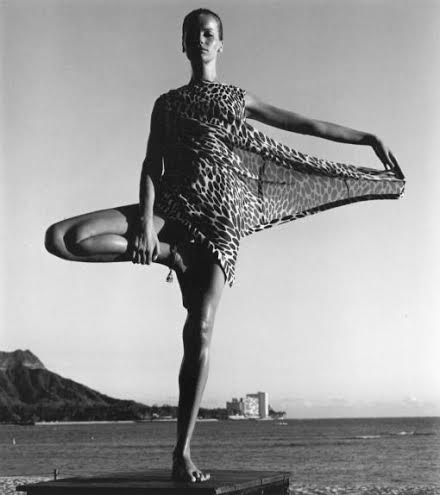
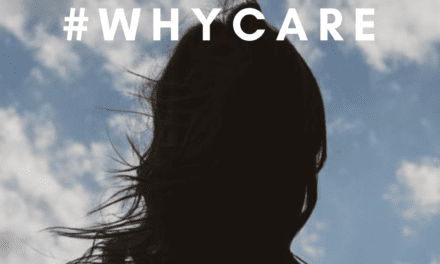
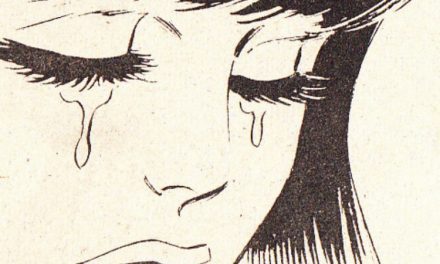

Wow • this is beautiful • thank you for being honest. I completely agree! I was lucky enough to have a doting & cooking (!!!) partner for eight straight days & to be staying with my in-laws when I gave birth at home. My post-partum journey was a long one! I dipped into the “baby blues” as my midwife called it, but she stuck around long enough to see me through it. It was difficult to have such strong emotions, especially while my stitched up body was healing & all while keeping a new baby human alive. I now am honest with my new mom friends about what to expect (which they don’t really tell you about) after your precious little one arrives. It is ugly, painful, scary, longer then you think, unknown & isolating. If all the moms looks back to their day & are honest with themselves, it be beneficial to remember how difficult it all is & to take care of & hug the new moms around them. Maybe we’d all be more excepting of the miraculous, phenomenal, empowering & world changing act of childbirth & the fourth trimester • thank you again, for this beautiful article, tough, rebel mama •
Thank you for reading and taking the time to respond. I’m so glad it resonated with you. I definitely believe we should share and be honest about our experiences… When my preggo friends ask about it I just tell them not to be afraid to ask for help and to listen to their bodies when they’re saying “hey I’m doing too much! I need to rest!”. It’s all to easy to ignore that instinct and just push through which is SUCH a bad idea in that 4th trimester (as EVERYONE needs to start calling it!). Xx
Thank you for this essay. I had 6 children in 7 years, over 30 years ago. My daughter, who was my first baby, sent me your writing about helping our mothers through their postpartum transition. She is now 10 weeks into hers and I am a grateful mama because I knew she would need help and I could show up for her. I love going over to her place and helping out whenever she asks.
I wasn’t so lucky as a young mother and I suffered alone with my postpartum anxiety.
I suppose my one solution has been to give to my daughter what I would wish for all mothers. Unconditional Love.
It is a welcome opportunity when I can help her to heal because it helps me recover from the sadness I felt and the lonesome time I had so long ago.
Thank you for your response! There is nothing more comforting than having your mom helping you in those early postpartum days… There is something so calming and reassuring in having you guys around. I’m sure your daughter appreciates every minute. How amazing that one tiny little human can put the wheels in motion to help his grandma and his mama heal all at the same time – gotta love those babies! Enjoy it ?
What an honest piece. Why is that we are so afraid to ask for help? After my first (she’s 8 now) I had very bad baby blues. I litterly wanted to leave her and run away. Run to my old life. I was scared of her. Thank goodness I had my mom. She helped me a lot. But she didn’t quite understand my out of no where crying and silence. She never felt the way I did. And therefore I kept most inside. Tried to toughen up myself, it took couple of weeks for me to accept my new role and adjust.
With my second (4 years old now) I mentally prepared myself and my hubby that it will be bad. That no longer I will keep it inside. My hubby and I had many conversations about the baby blues which I revealed to him much after. To our surprise none came. What a sigh of relief. I was waiting… first week gone by and I’m ok, second gone by and I’m ok, third nothing.
I agree with ur statements of mothers sharing their feelings. Share what’s on your mind with your partner, spouse, mother, friend and most definitely ask for help. They are all waiting for you to ask anyway!!!!
Rebel mama
It’s so true. The people who love us are just dying to help – we should never feel guilty for asking! I’m so glad you found adjusting to motherhood the second time around so much more natural than the first time. We are totally the lucky ones with our strong support systems, aren’t we? So easy to take that for granted. Thank you for taking the time to respond mama x
Absolutely loved the honesty of your writing! I’m from Costa Rica , had a baby 11 months ago, I still believe in the ‘cuarentena’. 40 days of help! I love the idea of having a tribe of women that can be honest with you, experienced (grandma included) and just waiting to help.
We often underestimate post-partum, if we take care of ourselves so much during pregnancy, why wouldn’t do the same on that ‘fourth trimester’?
Hmm How to keep this short…
I had in laws and friends tell me leading up to my labour about how easy it can be and is for most people. How people birth babies in rice fields by themselves and keep working. How one person got it done in 6 hours, how another in 3 hours and even a couple in one hour. Toooo easy child birth is! basically what everyone was telling me is that I am silly to think it could be a very painful ordeal.
84 hours of labour and I finally pushed my baby out. 84HOURS! No sleep, not enough food, anxiety about annoying the midwife and when to go to the hospital and the most pain I’ve ever experienced in my life!!! And I’ve had some bad injuries. My saving grace was my family and boyfriend. I could not have done it without their love and support.
I am now almost three weeks in to having a beautiful girl and my nipples hurt like they may fall off! I’m exhausted beyond belief and since we are building a house i am often without my boyfriend. Luckily I have a very caring and loving family to help me otherwise I think I might have just shrivelled up.
This baby means the world to me but I had no idea how hard this mama hood would be. I wouldn’t change anything (except maybe have the house built so I could go home and be with my boyfriend permanently) but I really appreciate the reality being shared here. I despise the women who told me “how easy it is”. I wish they could have gone through what I did.
Oh girl, I feel your pain. Those early weeks are hard on ALL OF US, but thank God you have your family around to help and support you. I feel like the only way you’ll stop wanting to go back in time and bitch slap anyone who told you that birth is easy is to consider that they were probably just trying to make sure you weren’t too freaked out going into it… Imagine if everyone just told you the horror stories instead of how easy it could be? That would be pure evil. I’m glad that this piece resolated with you. Honesty is important and I’m glad you’re being straight up about your experience too. Good luck with the house and congrats on the bundle! x
What can I do as a grand mum who lives out of town?
So lovely of you to seek advice. Simply checking in to make sure mama is doing well would be very much appreciated I’m sure (not JUST asking about baby!). If it’s feasible, maybe offer to hire a cleaning service for your daughter/daughter-in-law so she has a few less things to stress about while she recovers? I know I would love to recieve a practical gift like that! Enjoy your grandbaby – congratulations 🙂
My oldest is almost 6 and your article brought me to tears recalling how difficult my physical and emotional recovery was after her birth. I was lucky to have my parents stay 2 weeks but stupidly I had a “Todo” list of projects around the house for them (we had just moved in a month before) and even though they were doing the work just the fact that I had to provide directions was too much for my over-whelmed mind. On top of recovering from an episidiotomy and having severely engorged breasts I was suffering from insomnia and constipation. And I felt guilty for delaying the visit from my in-laws who were coming to stay with us from out of town and with my husband’s sister, preschooler and 3 month old (they were understanding but I still feel guilty because their visit had been planned well in advance).